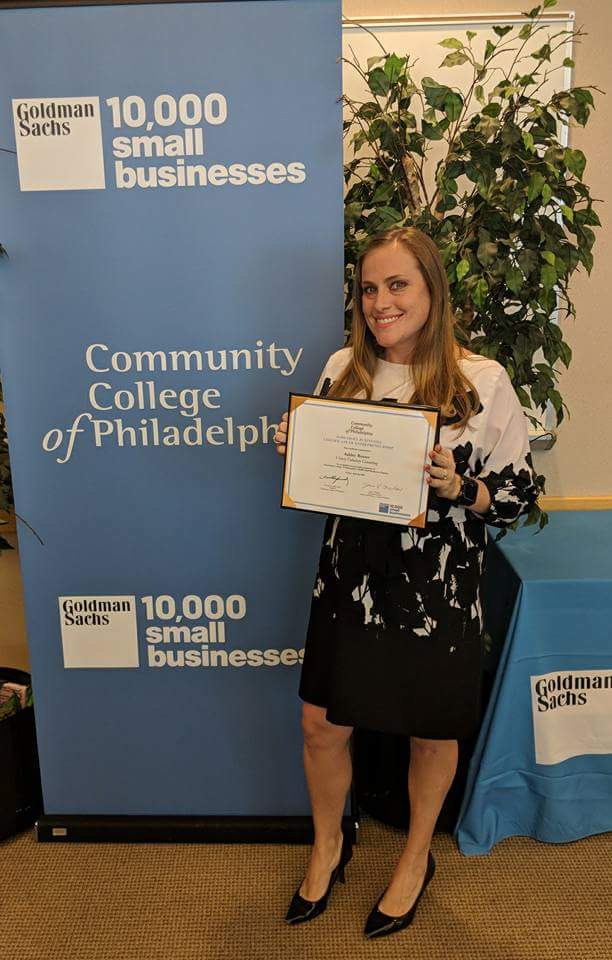Category Archives: Company News

Investing in the Stock Market – Riding the Roller Coaster
Investing in the stock market can be unpredictable, and even scary if you are not prepared ahead of time. If you recently looked at your most recent 401k statement, you know the stock market has been taking investors for a wild ride. On December 24th 2018 the Dow Jones dove 600 points. One week later on New Year’s Eve, the market rallied and climbed 265 points, lessening the blow from the previous week. It left some investors shaken, wondering what’s next? Some may have even opted to “get off the ride”, without really understanding the long term effects of doing so.
Investing in the stock market can be a Roller Coaster RIDE
I’m reminded of when I took my daughter on her first roller coaster. As we were waiting, I prepared her. “We will climb way up that hill. Once we get to the top, we will come down really fast. We will go up and down a few more hills, but we will be safe and you will have fun.” As we began, my daughter anxiously looked down below and said, “I don’t want to go down the hill anymore.” I held her hand saying, “we have to go down, it’s all part of the ride”. As we raced down the first hill she screamed, “I WANT TO GET OFFFFFFF!” I told her if we got off now, we would get hurt, we had to finish the ride. That afternoon reminds me of what investors should remember during periods of volatility. You can’t expect the market to be permanently rising. History has shown us that we can expect a negative performing year every five years. Yes, we are well overdue. How do you ride out the turbulence?
Riding out turbulence when Investing in the stock market
First, make sure your train is on a well laid track. Ensure you are appropriately invested in a well-diversified account. A financial advisor can help you determine what percentage of stocks, bonds and cash you should consider investing in your portfolio. Your risk tolerance and time horizon should be large consideration. A good rule of thumb is if your portfolio is appropriate today, it should still be appropriate tomorrow even if the market environment has changed. Don’t “get off the ride” prematurely. Choosing to change your positions or get out of the market during a market downturn can lock in any losses permanently. Diversification is key for most long term investors. Having exposure to different asset classes and sectors will allow you make the most of a volatile market. Keep investing, even when the market is down. Remember, when the value of mutual funds go down you are essentially buying market shares “on sale”. Who doesn’t love a good sale? Also, investors should make sure the fees they pay are reasonable. While you can’t control the market, you can certainly control costs within your investments. Overpaying for advisory services will certainly cost you a lot in the long run! Finally, remember the ups and downs and turns are all part of the ride.
There is no such thing as a flat roller coaster and the same goes for the stock market. We have to have the occasional lows if we want to enjoy the highs. As for my daughter, she too learned to embrace the ride. As our train came to an abrupt stop back at the platform she grinned ear to ear and said, “let’s do that again mom!”
– Best Regards, Ashley Rosser President Victory Wealth Partners.
 Ashley Rosser, President
Ashley Rosser, President
Prior to her career in the financial services industry, Ashley earned her Bachelor of Science in Nursing from Cedarville University.
Ashley decided to make a career change from her ten years within the healthcare industry as a pediatric emergency room nurse to retirement and 401K investment planning. She joined Victory Wealth Partners in 2008 after obtaining her Series 65 professional financial license and went on to earn her AIF (Accredited Investment Fiduciary) professional designation from the Center for Fiduciary Studies.

Should You Consider a Roth IRA or Roth 401K
You may have heard about a retirement account known as a Roth, but do you really understand what the potential benefits are and whether you should consider contributing to one? With all the different investment options and accounts that are available, its no wonder many people get overwhelmed. Today, we will share a quick synopsis of the Roth 401k /IRA option and why it may be beneficial to you.
Roth accounts are funded with “after tax” dollars. This means you pay taxes first, then your contributions are added to your retirement account. However, at retirement you will be able to take the full account balance TAX FREE. That’s right, no matter how much money your account has earned you can take the full amount without paying additional taxes.
Let’s consider an example. Emily contributes $200/month to a Roth 401k over 40 years. She did not receive any tax deferral benefits up front, rather she paid taxes on the money first. If her investments had average returns of 6%, at the age of 65 Emily would be able to take over $400,000 tax free. She paid taxes only on the $96,000. The rules for taking the tax free benefits are fairly simple. The Roth must be in existence for at least 5 years and an individual must be at least 59 ½ before starting withdrawals.
Determining whether a Roth fits into your financial plan may depend on how long you have until retirement. Typically, the longer the money will have to compound over time, the more attractive the Roth may be. Also, if you are still in a low earning tax bracket an individual may choose to utilize the Roth (as opposed to someone in a high tax bracket in high earning years). Each situation is different and so you should talk directly with your financial advisor to see if adding a Roth makes sense.
– Best Regards, Ashley Rosser President Victory Wealth Partners.
 Ashley Rosser, President
Ashley Rosser, President
Prior to her career in the financial services industry, Ashley earned her Bachelor of Science in Nursing from Cedarville University.
Ashley decided to make a career change from her ten years within the healthcare industry as a pediatric emergency room nurse to retirement and 401K investment planning. She joined Victory Wealth Partners in 2008 after obtaining her Series 65 professional financial license and went on to earn her AIF (Accredited Investment Fiduciary) professional designation from the Center for Fiduciary Studies.

Are the odds in your favor?
In case you have not heard, there is a mega millions drawing happening tonight. Actually, it’s a $2.6 billion dollar drawing. It has created a lot of excitement for many. Everywhere you go, you can hear people talking about what they would do if they won, where they would go, and what they would buy. Many have expressed quitting their jobs right away, buying a new house (or island), or helping family members. It seems people are inspired to dream when they have a chance of “winning big”. I have to admit, it is fun to get lost in the “what would I do with a billion dollars” fantasy. Unfortunately, the odds are certainly not in our favor of winning the lottery. I read somewhere that you have a better chance of “being drafted by the NBA or being killed by a vending machine” then winning the lottery. Yikes! But still, Americans across the country are excitedly buying their tickets in anticipation that this could be the life change they have been waiting for.
What if I told you that you don’t actually need luck to become a millionaire by the time you are 65. All it really takes is some forethought, discipline, and time. In fact, if you are still in your 30s, all it takes is saving $7,000 a year through a retirement account. That works out to about $580 per month before taxes. Which really means you will probably only miss about $460 from your actually net pay check. Friends, that is only about $220 per biweekly pay. Can you find a way to defer that into a 401k or IRA for the future payout of $1,000,000? Can you start with something smaller and build to achieve the ultimate goal? Someone in America might become a billionaire tonight, but it is possible for many more to become millionaires by the time they retire. It all starts with making the choice to save now for the future.
We love helping our clients hit the “retirement jackpot” … no lottery ticket necessary!

Victory Wealth Partners’s Coats for Kids Campaign
Our coats for Kids campaign was born from the experiences of our President, Ashley Rosser. Prior to her career at Victory, Ashley was a pediatric nurse for a hospital located in West Philadelphia for over ten years. She was often reminded of the daily struggles of so many children living in the nearby communities. Throughout the long winter months, while driving to work she would see small children walking to school in the bitter cold without jackets, hats, or gloves. This has forever stayed in her mind and she always hoped to one day help make a difference in the lives of children who are not able to have the basic necessities. This was the catalyst for Victory Wealth Partners’s first “Coats for Kids” campaign last year.
Over two months’ time, Victory collected 75 new and like new coats for kids and adults. By working with local schools, Victory was able to provide over 30 coats to children in need who live right in our communities. An additional 40 adult and children’s coats were donated to a mission in Camden who directly handed them out to those in need.
2018 Coats for Kids Campaign
We are hoping to make a difference again this year by collecting new and like new coats for kids and adults. We will be working with our local schools to distribute specific coats to students who have been identified to be in need. This year, we will also be taking donations of hats, mittens and scarves to go with the coats. You may drop off any donations to our office at 53 N. Main Street Mullica Hill NJ. We will also have a box on our porch for after-hours drop offs. We will be kicking off the “Coats for Kids” campaign at our annual Client Appreciation Day Open House on October, 25th from 3pm-7pm. Thank you so much for helping us make a difference in our community.

Making the Case for Life Insurance
Let’s look at making the case for life insurance. Life insurance isn’t about YOU. It is about your loved ones. When a spouse/partner dies unexpectedly, many times their loss is catastrophic to their family’s financial stability. Many households are two income families; the sudden loss of one’s income can be insurmountable for their family to overcome. No one ever wants to talk about the need for life insurance. It is an uncomfortable subject and most people view it as “the only purchase I hope I never need”. Unfortunately, the reality is by the time one realizes they or their partner should have purchased life insurance, it is often too late.
Making the Case for Life Insurance – Objections
One of the objections I hear often is “We are young and healthy, I do not see a need for it right now”. Wrong. The best time to look at purchasing insurance is when you do not have any medical issues. Once you receive a serious medical diagnosis, it can be very difficult and sometimes even impossible to secure coverage for yourself. Rates are also much more favorable for a younger, healthy person. Another response I hear often is “but I have coverage through my employer, why do I need my own policy” Unless you can guarantee that you will work for your current job until you either die or no longer need insurance, you are taking a gamble that you will have coverage when it is needed.
Making the Case for Life Insurance – Types
There are different types of insurance that offer different benefits and purpose. Some will simply provide a death benefit for a specific dollar amount and are guaranteed for a set number of years. Their payments are typically fixed for the duration of the contract. There are other insurances that can provide coverage “for life”. The premiums may be fixed or variable, depending on the specific coverage you are looking for. Some contracts are strictly designed to provide a death benefit, while others have cash value benefits as well.
Making the Case for Life Insurance – Expertise
It is important to sit down with an insurance professional who can help you determine how much coverage you should consider having and what type of insurance would best suit your specific needs. At Victory, we use a specialized program that helps our clients determine how much life insurance they should consider purchasing based upon their current needs and lifestyle. It is important to be well informed of your needs so you can properly protect your family for years to come.

How Much Should I Contribute to My 401K?
People always ask me “How Much Should I Contribute to My 401K?”, but many Americans are still not contributing anything to their company’s 401k plan. Of the employees who actually have access to a company sponsored retirement plan (only about 55% currently contribute) about 35% of these are still not contributing anything at all to their retirement. The grim reality is that for most, the only savings they will have at retirement will come from a company sponsored retirement plan. Those who do contribute are probably significantly underfunded. Many Americans have no idea how to even begin to project what current deferral rates they should be targeting.
So How Much Should I Contribute to My 401K?
A good rule of thumb for anyone to use is saving 10% of salary for 30 years. However, most employees are still living paycheck to paycheck, making 10% off the table, at least to get started. What should you do? I recommend to my clients to start off with ANY AMOUNT POSSIBLE to at least get themselves into the plan. Most people say if they never see it, they do not even miss it out of their check. If you are contributing to a tax deferred account (like a 401k, SIMPLE IRA or SEP) remember that your check is taxed AFTER your deferral so you will be missing less than the amount you are saving.
If your employer offers a match and you are not maximizing that, you are literally leaving money on the table that your employer is trying to give you for retirement. Once you start saving for retirement, the next goal is to defer just 1% more than the year before until you hit the 10% goal (or possibly more depending how close you are to retirement and how underfunded you are). 1% more each year can have a significant impact on your retirement balance at retirement.
Example:
An employee who earns $15 per hour during a 40 hour work week could save an additional $30,714 over 30 years by just increasing their deferral rate by 1% more each year. It is noteworthy that this 1% would amount to about $9.60 per bi-weekly pay going into their retirement account. That is just a few coffees or a pack of cigarettes!
Saving for retirement does not have to mean a huge change in habits, just a commitment to making small but powerful changes over time. We can offer you a complimentary full scope review to determine if you are currently underfunded for retirement. We will help you develop a plan to get back on track by using our retirement readiness program.
– Ashley Rosser AIF

Ways to Protect Yourself from Identity Theft
Victory Wealth Partners is proud to offer you tools and tips to protect yourself from identity theft. Unfortunately identity theft is a growing problem as our reliance on technology increases. It is important to be proactive to protect your identity and personal information.
Avoid Public Wi-Fi – Scammer’s can setup unsecured networks that hack data from your device. If you do use a local hotspot for Wi-Fi, make sure you use a password secured network and avoid conducting financial transactions or logging into your bank account.
Passwords – Make sure your passwords are complex and change them often. Passwords should have a minimum of 8 characters, letters, and numbers. Avoid using personal identifiers (name, date of birth).
Social Media – Be cautious of what you post on social media. Do not give easy access for criminals inadvertently. Avoid listing who you are with, your location, when you are on vacation, etc. This may give criminals information allowing them to break-in to your house or trace your footsteps.
Applications – Avoid installing suspicious applications and only download from reputable websites or applications. Scammers create apps that can allow your personal device data to be breached. Information such as saved passwords, personal data, banking credentials can all be vulnerable.
Phishing scams – Attempts made by scammers who create fraudulent e-mails, pop ups, and messages that looks like they are from legitimate companies. They attempt to collect your banking, credit card, passwords, or personal information. If you are unsure if it is legitimate, take the extra step and call the company to verify before providing any information.
Phone scams – Avoid answering a phone number do not recognize. Scammers will use phone numbers that resemble a local number in hopes that you will answer. If you do answer and the recording or live person is claiming to be your Credit Card Company or bank, just remember that your Credit Card Company or bank will never call and ask for your personal information. Immediately hang up and call your bank or credit card company to confirm. If you receive a threatening call from someone demanding payment, hang up and call the business they claim to be from.
If it’s too good to be true, it probably is.
How to Reduce the Risk of Identity Theft
Review your credit report often. You are entitled to a free copy from each of the three nationwide credit reporting agency every 12 months. Call 1-877-322-8228 or order online from www.annualcreditreport.com (only authorized website for free credit reports).
Monitor your bank accounts, credit card transactions, and billing statements early and often.
Don’t be afraid to ask questions about security practices at your doctor’s office, bank, hospital, utility companies, etc.
If you want to be proactive about protecting your credit, placing a freeze on your credit report with each of the credit monitoring companies is the best way to prevent someone from opening unwanted accounts with your social security number.
What to do if your identity has been stolen
Record Keeping – Be sure to keep records of all correspondence with the creditors and agencies you contact. Follow up all telephone calls with a letter and keep a copy.
Creditors – Notify all creditors and financial institutions, in writing and by phone, that your name and accounts have been compromised.
Federal Law Enforcement – Report the crime to the Federal Trade Commission (FTC) at identitytheft.gov
Credit Reporting Agencies – Contact the three national credit reporting agencies by phone (Equifax 1-800-525-6285; Experian 1-888-397-3742; Trans Union 1-800-680-7289)
Utility Companies – Ask utility companies to watch out for anyone ordering services in your name
FBI – if the identity theft was internet-related, file an FBI Internet Crime Complaint at ic3.gov
Consumer Affairs can be reached at (845) 340-3260
To receive your free card blocker from Victory, give us a call at 856-464-3100 ext. 109 and we will ship yours out today!

Ashley Rosser Graduates Goldman Sachs 10,000 Small Business Program
Victory Wealth Partners is proud to announce our President Ashley Rosser graduated from the Goldman Sachs 10,000 Small Business Program in April 2018. Designed to create jobs and grow the economy by bringing education, capital and support services to business owners throughout the United States, the Program is funded by a $500M grant from the Goldman Sachs Foundation. It was an honor for Ashley to be invited in the program, joining 21 other business owners from various backgrounds and industries. It is guided by an advisory council including Babson University, Goldman Sachs CEO Lloyd Blankfein, Bloomberg founder, CEO, and former New York City mayor Michael Bloomberg, and Berkshire Hathaway chairman and CEO Warren Buffett. The curriculum has been developed by Babson University and administered by the Community College of Philadelphia. Ashley has been working hard to implement the knowledge and experiences she gained during her time as a student. Stay tuned for exciting updates this coming year.

Latest News from Victory Wealth Partners – July 2018
Here are the latest development in our financial consulting practice.
Increased Cybersecurity Measures
Victory engaged SSD Technology Partners in March 2018 as our cybersecurity provider. SSD uses multilayer security solutions to detect potential vulnerabilities on our servers, PCs, email system, and any other critical applications. SSD also uses two-factor authentication, data encryption, and other practices to protect our security position. E-mails sent from Victory are secured through Erado. We take cybersecurity very seriously as protecting your personal information is our top priority.
eMoney Software System
Victory is excited to announce that we are now fully integrated with eMoney. eMoney is a sophisticated financial planning software program that is now available for all of our clients. Some features of the program include Interactive Estate Planner, Goal Planner which allows eMoney to predict the probability of achieving a goal, and Need Analysis tool that can project different financial scenarios such as; college planning, insurance needs analysis, retirement planning, and more. If you are interested in learning more, give us a call today to schedule an in person meeting or online webinar.













